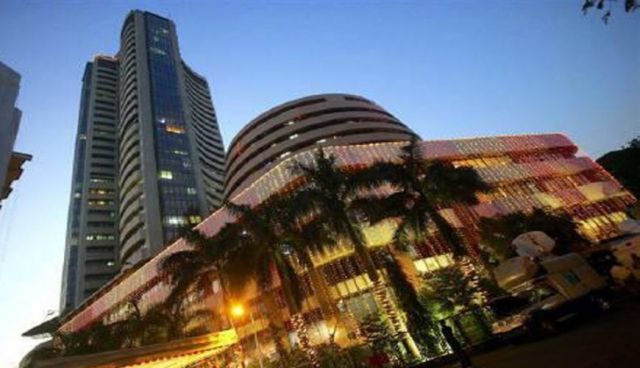
by Editor | May 25, 2021 | Economy, Markets, News
 By Rohit Vaid,
By Rohit Vaid,
Mumbai : Macro-economic data points coupled with the direction of foreign fund flows and fears of higher inflationary pressure are expected to influence the Indian equity markets during the upcoming week.
According to market observers, triggers such as the global geo-political situation and crude oil price movement can unleash volatility.
“The markets next week would start with the PMI (Purchasing Managers’ Index) data for advance clues on where the manufacturing and services economy is going,” Devendra Nevgi, Founder and Principal Partner, Delta Global Partners, told IANS.
“As global investors mostly return to work late in the next week, the fresh year’s allocations would be critical. Markets would also look for support from domestic investors continuing in the new calendar year. Crude oil prices have already breached $66.5 per barrel, this combined with higher inflationary expectations may dampen the sentiment.”
Key macro-economic data points like the monthly automobile sales’ numbers, eight core industries’ (ECI) output, PMI manufacturing and services’ figures will be released during the week staring January 1, 2018.
According to D.K. Aggarwal, Chairman and Managing Director of SMC Investments and Advisors: “Macroeconomic data, trend in global markets, investment by foreign and domestic investors, the movement of rupee against the dollar and crude oil price movement will dictate trends on the bourses in the first week of the new year.”
Analysts opined that the direction of foreign fund flows and near-term trends in the rupee’s movement against the US dollar will also affect market sentiments.
Provisional figures from the stock exchanges showed that foreign institutional investors (FIIs) bought stocks worth Rs 1,676.07 crore, while domestic institutional investors (DIIs) purchased scrip worth Rs 25 crore during last week.
On the currency front, the rupee is expected to trade in the range of 63.60-64.10 to a US dollar. Last week, it had strengthened by 18 paise to closed at 63.87 to a greenback.
“The Indian rupee is expected to remain firm due to a weak dollar and healthy inflows into the Indian debt and equity markets. The immediate short-term range is expected to be between 63.60-64.10,” Anindya Banerjee, Deputy Vice President for Currency and Interest Rates with Kotak Securities, told IANS.
On technical levels, the underlying trend of the National Stock Exchange’s (NSE) Nifty remains bullish.
“Nifty is expected to trade between 10,400-10,650 levels while bank nifty is expected to trade between 25,300-25,850 levels,” Aggarwal predicted.
Last week, the key Indian equity indices — the BSE Sensex and the NSE Nifty50 — rose for the fourth consecutive week.
Consequently, the 30-scrip Sensitive Index (Sensex) of the Bombay Stock Exchange closed higher by 116.53 points or 0.34 per cent to 34,056.83 points.
Similarly, the Nifty50 of the NSE rose by 37.7 points or 0.35 per cent to 10,530.70 points.
(Rohit Vaid can be contacted at rohit.v@ians.in)
—IANS
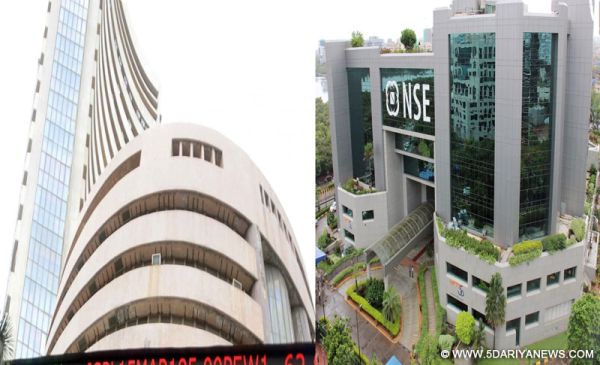
by Editor | May 25, 2021 | Economy, Markets, News
 By Rohit Vaid,
By Rohit Vaid,
Mumbai : Subdued macro-economic sentiment, coupled with rising geo-political tensions in the Korean Peninsula and continuous outflows of foreign funds dragged the key Indian equity markets in the red last week.
Consequently, the two key indices — the BSE Sensex and the NSE Nifty — receded below their psychologically important levels of 32,000-points and 10,000-points as investors were spooked over a possibility of government exceeding its fiscal deficit target to stimulate the economy.
On a weekly basis, the 30-scrip Sensitive Index (Sensex) of the BSE declined by 350.17 points or 1.09 per cent to 31,922.44 points.
Similarly, the Nifty 50 of the National Stock Exchange (NSE) edged lower to 9,964.40 points, down 150.6 points or 1.19 per cent.
According to Dhruv Desai, Director and Chief Operating Officer of Tradebulls, rising geo-political tension eroded investors’ risk-taking appetite and subdued global and domestic markets.
“Geo-political tensions, continue to take centre stage, as things have gone from bad to worse,” Desai said.
Besides geo-political tensions, FOMC (Federal Open Market Committee) minutes dampened investors’ sentiments. The US Fed has indicated that there will be one rate hike in December 2017 and three in 2018.
A likely US rate hike can potentially drive away foreign portfolio investors (FPIs) from emerging markets such as India.
“Domestic markets became nervous after the US Federal Reserve outlined plans to unwind its $4.2 trillion balance sheet starting next month,” D.K. Aggarwal, Chairman and Managing Director, SMC Investments and Advisors, told IANS.
“The domestic currency hit 65 levels against the US dollar for the first time in more than five months on the back of speculation about the government going in for a fiscal deficit relaxation, with talk of a Rs 40,000-Rs 50,000 crore stimulus.”
Provisional figures from the stock exchanges showed that FIIs continued with their selling spree and off-loaded stocks worth Rs 5,448.66 crore during the week.
However, domestic institutional investors bought scrip worth Rs 3,581.88 crore.
Figures from the National Securities Depository (NSDL) revealed that foreign portfolio investors (FPIs) divested equities worth Rs 3,911.21 crore, or $354.46 million, during September 18-22.
On the currency front, the Indian rupee weakened by 72 paise to close the week at 64.80 to a US dollar from its previous week’s close at 64.08.
Market observers added that liquidity was redirected from equities to insurance IPOs of ICICI Lombard and SBI Life.
“During the week Insurance IPOs of ICICI Lombard and SBI Life sucked some liquidity from markets, FII flows remained negative… Indian rupee became weak against the US dollar along with most of Asian currencies,” said Anita Gandhi, Whole Time Director at Arihant Capital Markets.
“Macro factors like fiscal deficit, CAD, inflation and new employment generation indicated weakness.”
(Rohit Vaid can be contacted at rohit.v@ians.in)
—IANS
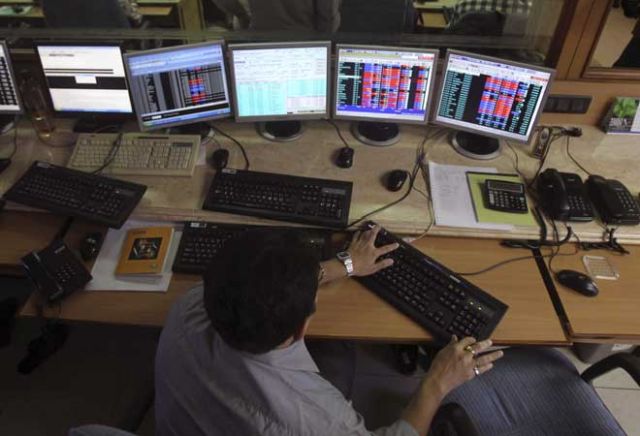
by Editor | May 25, 2021 | Economy, Markets, News
 Mumbai : Positive global cues, along with healthy buying in automobile, capital goods and banking stocks, lifted the Indian equity markets, with the NSE Nifty50 touching record high levels during the mid-afternoon trade session on Monday.
Mumbai : Positive global cues, along with healthy buying in automobile, capital goods and banking stocks, lifted the Indian equity markets, with the NSE Nifty50 touching record high levels during the mid-afternoon trade session on Monday.
According to market observers, the rally was aided by persistent pumping in of funds by domestic investors.
At 12.30 p.m., the wider 51-scrip Nifty50 of the National Stock Exchange (NSE) traded at a fresh new level of 10,164.25 points — up 78.85 points or 0.78 per cent — after touching a record intra-day high of 10,167.15 points.
Earlier, the Nifty50 had touched a record intra-day high of 10,137.85 points on August 2.
The 30-scrip Sensitive Index (Sensex) of the BSE, which opened at 32,361.37 points, traded at 32,474.38 points — up 201.77 points, or 0.63 per cent, from its Friday’s close at 32,272.61 points.
The Sensex has so far touched a high of 32,508.06 points and a low of 32,361.25 during intra-day trade.
The BSE market breadth was bullish — 1,586 advances and 827 declines.
“Benchmark indices opened higher with Nifty hitting new record high, crossing 10,150, surpassing the previous milestone of 10,137,” said Dhruv Desai, Director and Chief Operating Officer of Tradebulls.
“Strong buying from domestic institutional investors (DIIs) has supported the 24 per cent rally in Indian stock markets this year. According to estimates, they have pumped in around Rs 70,000 crore into stock markets this year till September,” Desai told IANS.
On Friday, the benchmark indices closed on a flat note as weak global cues on the back of recurring geo-political tensions, coupled with profit booking, subdued investors’ sentiments.
The Sensex closed with marginal gains at 32,272.61 points — up 30.68 points, or 0.10 per cent, while the Nifty50 inched down 1.20 points, or 0.01 per cent, to close at 10,085.40 points.
—IANS
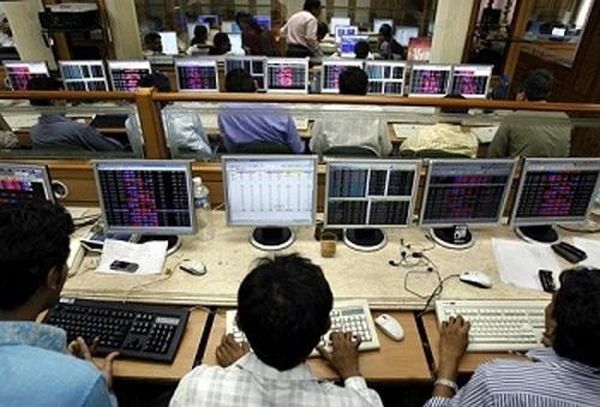
by Editor | May 25, 2021 | Economy, Investing, Markets, News
 By Rohit Vaid,
By Rohit Vaid,
Mumbai : Macro-economic data points and the direction of foreign funds’ flow are expected to influence sentiments of investors and set the tone for the Indian equity markets in the upcoming week, feel senior analysts.
Other important factors such as the geo-political situation in the Korean peninsula, rupee’s movement and government’s measures to tackle the non-performing assets (NPAs) will also have a major bearing on the stock markets.
Market observers pointed out that investors would take cues from the upcoming macro-economic inflation and industrial production data points.
The Central Statistics Office (CSO) will release the IIP (Index of Industrial Production) and CPI (Consumer Price Index) data points on September 12, Tuesday.
The CPI numbers will be followed by that of foreign trade figures and the release of WPI (Wholesale Price Index) data on September 14.
“Next week is going to be data heavy with the release of CPI, IIP and WPI. These are expected to have a major impact on the markets,” Dhruv Desai, Director and Chief Operating Officer of Tradebulls, told IANS.
“These macro-economic data points will also be viewed keeping an eye out on the earnings growth.”
Besides the macro-economic data, geo-political developments and a slowdown in domestic investment flows are likely to make investors nervous.
“Global geo-political development, especially the one taking place in the Korean peninsula, will be keenly followed by the investors,” Devendra Nevgi, the Zyfin Advisors Chief Executive, said.
“After large outflows of foreign funds, even domestic funds slowed down last week. This trend needs to be tracked as high prices, which are based mostly on PE expansion, might not sustain on such levels with a slowdown in domestic flows,” Nevgi explained.
Provisional figures from the stock exchanges showed that DIIs (domestic institutional investors) bought scrips worth Rs 1,210.12 crore last week. But, foreign institutional investors (FIIs) continued with their selling spree and off-loaded stocks worth Rs 3,426.51 crore.
Figures from the National Securities Depository (NSDL) revealed that foreign portfolio investors (FPIs) divested equities worth Rs 3,409.13 crore, or $531 million, during September 4-8.
In addition to investments, Indian currency’s movement against the US dollar would be closely watched by investors. The Indian rupee strengthened by 23 paise on a week-on-week basis to close at 63.79 to a US dollar from its previous week’s close of 64.02-03.
“A strong macro story and positive risk environment will continue to favour rupee. We expect a range of 63.70 to 64.20 over the near-term on spot,” Anindya Banerjee, Deputy Vice President for Currency and Interest Rates with Kotak Securities, told IANS.
On technical levels, the NSE Nifty is in a consolidation phase in a range of 9,861-9,983 points, according to Deepak Jasani, Head – Retail Research, HDFC Securities.
“Further directional cues are likely to emerge on a move beyond this range,” Jasani said.
Last week, global cues and sustained outflow of foreign funds dragged the key equity indices in the red after three consecutive weeks of gains.
Consequently, the 30-scrip Sensitive Index (Sensex) of the BSE declined by 204.71 points or 0.64 per cent to 31,687.52 points from its previous week’s close.
Similarly, the NSE Nifty50 closed at 9,934.80 points, down 39.6 points or 0.4 per cent.
(Rohit Vaid can be contacted at rohit.v@ians.in)
—IANS
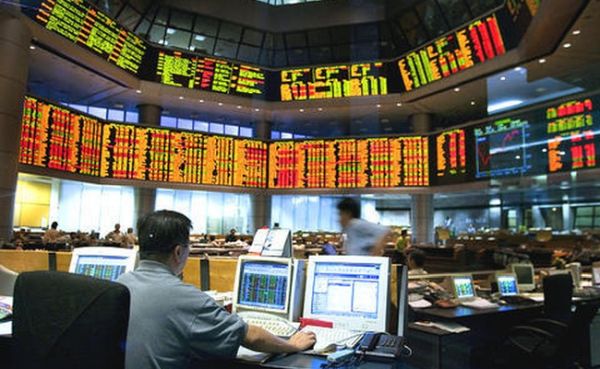
by Editor | May 25, 2021 | Economy, Markets, News
 ket
ket
By Rohit Vaid,
Mumbai : Global cues, along with the government’s measures to revive growth and tackle the non-performing assets (NPAs) issue are expected to determine the way forward for the Indian equity markets during the upcoming week.
Besides, the rupee’s movement against the US dollar and the direction of foreign funds flow will also have a major bearing on the trajectory of the equity indices.
“Equity markets are expected to remain range-bound next week and driven mostly by stock-specific action. However, investors will take cues from global developments, especially the geo-political situation,” Devendra Nevgi, Chief Executive of Zyfin Advisors, told IANS.
“On the domestic front, reform developments over the NPA issues and growth concerns after the subdued GDP numbers will be eyed. Nevertheless, domestic flows are expected to continue despite negative macros.”
Apart from global cues, Indian currency’s movement against the US dollar would be keenly watched by investors, as earnings of export-oriented sectors like IT and pharma might be impacted due to a strengthening rupee.
“On year-to-date basis, the Indian rupee has appreciated by 7.2 per cent. This will benefit the import segment and lower inflation. However export-oriented sectors like software, pharmaceuticals, automobiles and textiles will suffer,” Anindya Banerjee, Deputy Vice President for Currency and Interest Rates with Kotak Securities, told IANS.
“This will impact their guidance, earnings per share and subsequently impact their scrip prices.”
However, on a weekly basis, the Indian rupee closed flat at 64.02-03 to a US dollar.
According to Hariprasad M.P., Senior Vice President and Head Treasury at Centrum Direct, last week saw the US dollar-Indian rupee pair moving in a narrow range (63.90 to 64.20) with an appreciation bias for the Indian rupee.
“Resolution in the Doklam standoff with China and the general positive trend in the markets helped the rupee gain compared to the previous week,” Hariprasad said.
“The appreciation of the Euro against the US dollar also helped strengthen the Indian rupee. The pair is expected to again trade in a narrow range in the coming week .”
Another major factor for the Indian equity markets will be the direction of foreign funds flow given the pull-back in foreign institutional investors’ (FIIs) investment.
Figures from the National Securities Depository Ltd revealed that foreign portfolio investors (FPIs) divested equities worth Rs 14,706.68 crore, or $2.29 billion, during the month of August, whereas during August 28-September 1, FPIs invested in equities worth Rs 300.12 crore, or $46.99 million.
Provisional figures from the stock exchanges showed that FIIs sold stocks worth Rs 2,352.07 crore, while DIIs (domestic institutional investors) bought scrips worth Rs 3,399.8 crore during the week ended September 1.
On technical levels, the NSE Nifty is expected to make upward movement towards 10,070 points.
“Technically, Nifty, having closed above 9,952 points, looks set for some more up-move towards 10,030-10,070 points next week,” Deepak Jasani, Head — Retail Research, HDFC Securities, told IANS.
“Weakness could emerge if the support of 9,851 points is broken.”
Last week, key equity indices gained around one per cent each on hopes of a rate cut by the Reserve Bank of India, coupled with short-covering and healthy auto sales and manufacturing data.
Consequently, the 30-scrip Sensitive Index (Sensex) of the BSE surged by 296.17 points or 0.94 per cent to 31,892.23 points.
Similarly, the Nifty50 of the National Stock Exchange (NSE) made gains. It closed at 9,974.40 points, up 117.35 points or 1.19 per cent.
(Rohit Vaid can be contacted at rohit.v@ians.in)
—IANS





